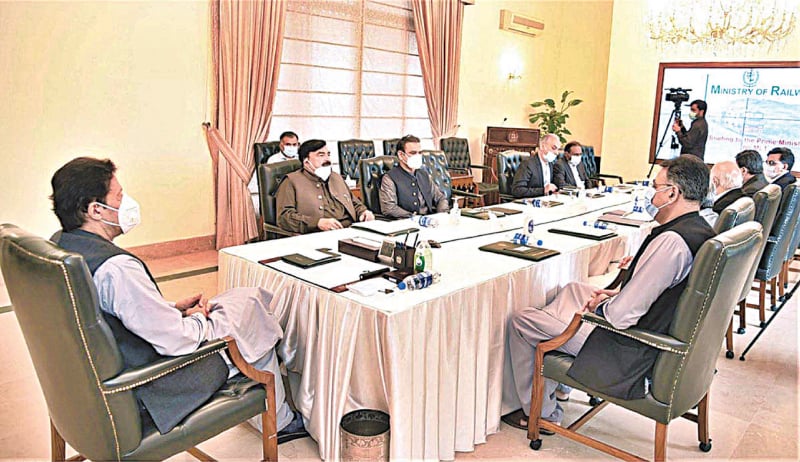ISLAMABAD: Prime Minister Imran Khan on Monday said that the Main Line-1 (ML-1) project of Pakistan Railways would prove to be a game changer not only for creating jobs, but also boosting economic activities in the country.
Chairing a meeting on the ML-1 project to review its progress, the prime minister said: “ML-1 is the most important segment of the China-Pakistan Economic Corridor (CPEC)”.
The prime minister was briefed on the implementation of the ML-1 project within the stipulated time frame.
The meeting was attended, among others, by Minister for Railways Sheikh Rashid Ahmed, Planning and Development Minister Asad Umer, Adviser to the PM on Finance Dr Abdul Hafeez Sheikh and Chairman of the CPEC Authority retired Lt Gen Asim Saleem Bajwa.
“ML-1 project will begin a new era of progress and economic uplift,” the prime minister said, adding that people’s welfare and social uplift was the main objective of the government behind all development projects.
Directs early implementation of power sector’s restructuring roadmap
The meeting was informed that the project would not only provide better travelling facilities to the people, but also facilitate the business community and industries, besides reducing their production cost.
The prime minister was keen on the timeline for completion of one of the biggest railway projects ever launched in the country.
Power reforms
Presiding over a separate meeting on reforms in the power sector, the prime minister directed early implementation of the restructuring roadmap already approved.
He said the power sector was affecting the economic growth of the country and immediate overhauling and reform process was essential to lessen the existing burden on consumers.
The meeting was attended by Planning Minister Asad Umar, Minister for Power Omar Ayub, Special Assistant to the PM on Power Shahzad Qasim, SAPM on Petroleum Nadeem Babar and senior officials.
Issues related to the power sector, the proposed roadmap for reforming and restructuring the sector and matters pertaining to circular debt and negotiations with the independent power producers (IPPs) came under discussion.
Prime Minister Khan appreciated the progress in mutually agreed changes to the IPP contracts and said rationalisation of cost would help in reducing circular debt.
He advised the minister for power to apprise the public of the major milestone achieved in negotiations with the IPPs and its potential benefits for consumers, including domestic and commercial.
The minister for power told the prime minister that he would hold a series of press conferences to inform the people about the benefits they would get due to the agreement signed between the government and IPPs.
Published in Dawn, August 18th, 2020













































